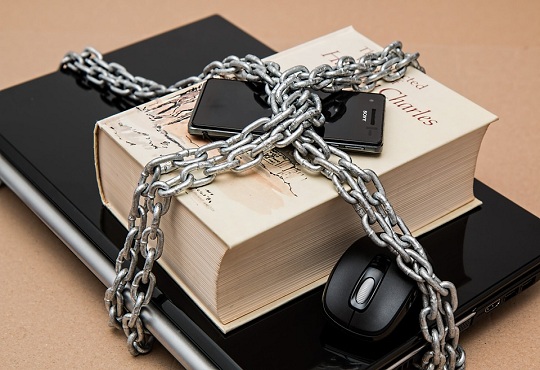
Mobile Security in the Workplace: How to Ensure Your Data Stays Safe
CIOReview Team | Tuesday, 28 May 2019, 04:40 IST
 Now that the smartphone has become a part of every household, the business world has followed suit. The omnipresence of mobiles and apps is playing a more and more significant role in entrepreneurship.
Now that the smartphone has become a part of every household, the business world has followed suit. The omnipresence of mobiles and apps is playing a more and more significant role in entrepreneurship.
On the one hand, employees tend to spend more time using smartphones to handle their personal matters at work. A poll conducted by Harris Insights and Analytics shows that 55% of employers find smartphones to be major productivity killers.
However, the report published by Apperian in 2016 indicates that 53% of managers praise mobile apps for improved work productivity. When employees use their mobiles for work, employers and team leaders can speed up the entire work process.
For instance, they can share important documents, notes, and schedules via cloud-based apps. In turn, employees can access those documents in the office, at home, or during their commute. The communication is more responsive, and the users receive feedback much sooner.
So, using mobiles at work can have both advantages and drawbacks, but it’s crucial to ensure your data stays safe.
Choosing between the BYOD and dedicated device policy
Business owners and managers use smartphones to improve their productivity. But the first decision that every employer needs to make is how they are going to define their smartphone policy.
On the one hand, they can provide devices for all their employees. This would be convenient from an operational point of view. All employees would have the same devices, with identical operating systems, so troubleshooting would be quicker. This is especially important when cybersecurity is involved. If a vulnerability was discovered in one of the devices, all of the others could be secured as well. What’s more, the employer could have maintenance performed by the same workshop.
On the other, this could lead to higher expenses on the employer’s side. It’s not cheap to pay for both the devices and their users’ monthly bills. To compromise, the employer might buy the devices, and the employees would need to pay their own bills.
Educating staff about mobile security
Business owners probably won’t have time to deal with every security issue personally. What they can do is organize a training session for their employees.
There are even some free mobile cybersecurity courses. For those sessions, managers only have to forward a link to their workers and ask them to pass the course. And in case they need to gain more advanced skills, they can speak with course organizers to get discounts for group attendance.
Also, it’s important to create a special confidentiality agreement that will determine how employees can use their smartphones. The contract should also clearly state what happens if someone breaks the rules. Business owners should probably consult with a legal advisor about this matter.
Practical in-house solutions
Entrepreneurs can also take some measures to increase the general in-house security.
For instance, they can ask their employees to connect to the internet through an encrypted VPN connection. That way, all the data sent from and to the smartphone will get an additional layer of protection.
This is especially important if your business has a lot of remote workers or employees who need to travel a lot. Traveling means connecting to public WiFi in airports, hotels, or conference venues. And public WiFi is known for being unsafe. It’s easy for hackers to intercept these connections and steal data being sent or received. A VPN will create a secure tunnel for the information to pass through, so you can be sure that no one is listening in. You can find one on play.google.com.
What’s more, business owners can have their employees install proper anti-virus and anti-malware apps. As a result, they’ll protect their business data from intruders and ensure that the devices stay functional. This is especially important to do because a lot of people don’t think twice before clicking a link in an email from someone they don’t know.
Conclusion
Since smartphones are used in every corner of the world, they’re irreplaceable in the business world as well. These gadgets enable quick communication and high responsiveness for professional collaboration.
However, there are always certain security risks that require our undivided attention. Business owners who take the measures recommended in this guide will ensure that their company’s data stays safe and secured.
CIO Viewpoint
Creating Holistic Mobile Strategies For Entire...
By Sheldon Monteiro, Chief Technology Officer, SapientNitro
Turning Technology Disruptions into Business...
By Shankar M V, Director Technology Planning & Innovation, Cummins India
Smarter, Better, Faster Business with the Cloud...
By Daniel M. Horton, CIO, Michael Baker International
CXO Insights
Vehicle Telematics - Mobility Towards the Future
By P. Ravishankar, EVP : Sales - Marketing - Aftermarket, Volvo Eicher
When the Internet of Things met Analytics
By Salil Godika, Chief Strategy & Marketing Officer, Happiest Minds Technologies
Visualize the Correlation of Variety of Big Data







